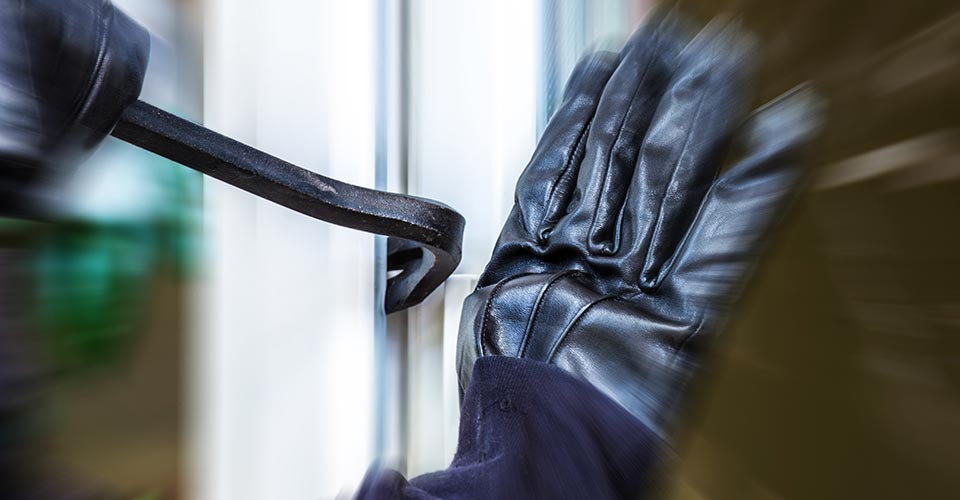BLOG
First Degree Burglary Charges and the Potential Consequences

For many people, the word “burglary” brings to mind a masked intruder sneaking quietly through a dark home in search of money and other valuables to steal. It’s an image that’s been portrayed on television and in the movies for years, however it isn’t really an accurate description of the broader, legal definition of burglary.
Defining the Criminal Charge of Burglary
Simply put, a person commits a burglary when they illegally enter a building or structure with the intent to commit a crime. Note that the definition doesn’t state specifically that the illegal intent needs to be theft. Burglary can occur with the intent to commit a crime whether it be a felony or in some cases a misdemeanor.
To prove a burglary occurred, it is up to the prosecuting attorney to provide evidence of several main points. These include:
- Illegal
entry
– It must be proven that the accused person entered the building or
structure without permission. Illegal entry expands out to include areas that
are open to the public, in which case it must be shown that the accused entered
with the intent to commit a crime.
- Force
-
Some states require that proof of forced entry be provided in burglary cases.
Most states however define burglary as only unlawful entry, with or without the
use of force.
- Intent to
commit a felony
– For a burglary charge to stick, the prosecuting attorney
must show that the accused entered the property with the intent of committing
any felony crime or misdemeanor theft. In states like Iowa, this includes being
in possession of explosives or dangerous weapons, intending to inflict bodily
injury to another person, or committing a non-consensual sex act which would
constitute sexual abuse.
What Are the Charges Associated with First Degree Burglary Charges?
Burglary is a very serious crime that is almost always charged as a felony offense. The penalties that come with a burglary conviction are often severe, but vary by state. For example, an Iowa burglary in the first degree is a class B felonythat’s punishable by up to 25 years in prison. In Nebraska, the same first-degree charge is considered a class III felonyand is punishable by 1 to 20 years in prison, a monetary fine of up to $25,000, or both.
In addition to prison time and fines, a court may also order someone convicted of a first-degree burglary charge to pay restitution to the victims for loss of property and other damages. When restitution is ordered, it is in addition to the number of other fines issued as a penalty of conviction.
Innocent Until Proven Guilty
A first-degree burglary charge is very serious and can result in years of your life being spent behind bars. It’s never a smart idea to take your defense into your own hands. You need a legal team with the knowledge and expertise to help you fight burglary charges and minimize the impact on your life. We’re here to support you and fight for your freedom. If you are looking at spending potentially decades in prison due to a first-degree burglary charge, contact Fitch & Stahle Law Offices today for a free consultation. We’re here to help.


